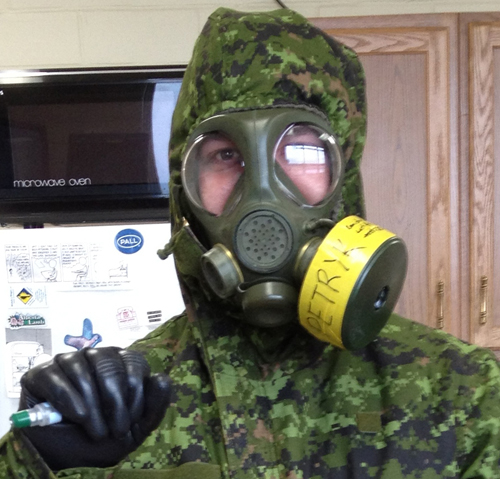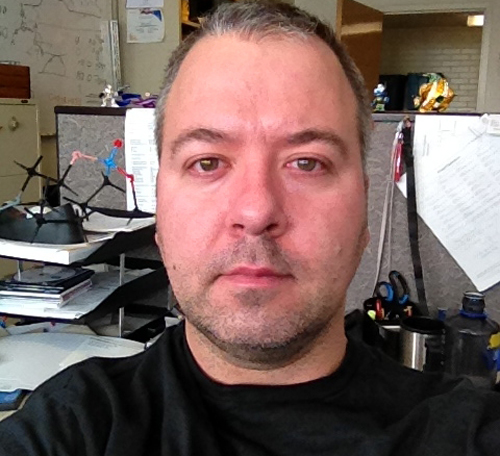
It’s Michael Petryk’s job to keep Canadian soldiers safe in dangerous places around the world. As a defence scientist for Defence Research and Development Canada (DRDC), he studies methods of detecting chemical warfare agents to help the Canadian Forces protect their troops.
“There are tens of thousands of chemicals that will kill human beings very efficiently, but not many of those are suitable for use as chemical warfare agents,” says Petryk, who studied physical chemistry at Guelph for his 1989 master’s degree and 2004 PhD.
Based in Suffield, Alta., his research at DRDC focuses on nerve agents and blister agents. He says chemical warfare agents (CWAs) with low vapour pressures can be difficult to detect by devices that “sniff” the air and alert soldiers when the CWA reaches a certain concentration.
Petryk is looking at other types of devices that can “see” the chemical composition of a substance based on how it reflects infrared light. The technology, called polarization modulation infrared reflection absorption spectroscopy, could be used in goggles or hand-held scanners to detect chemical warfare agents. “If you look at what’s absorbed, you can guess what’s in the sample,” he says.
DRDC-Suffield, one of eight research centres across Canada, conducts chemical and biological defence and blast research. Research on CWAs falls into three categories: defence (developing protective gear such as gas masks); therapeutic (medical treatment for exposure); and detection.
Petryk’s job is to help Canadian Forces stay one step ahead to protect their troops against current and emerging threats. When a new threat has been identified, he asks: “If this was going to be used against us, how would someone likely use it and how would we respond? A big thing for us is trying to prevent something from happening in the first place rather than responding to it.”
